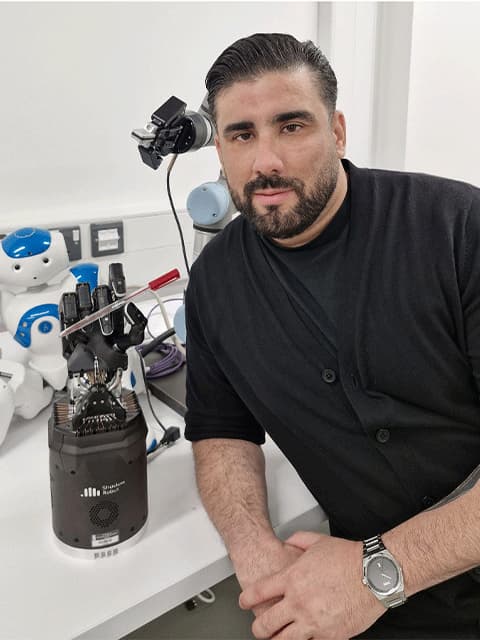Biography
Dr Diego Resende Faria is a Reader in Computer Science in the School of Science at Loughborough University, having joined the institution in 05/2025. Prior to this (2022-2025), he was a Reader in Robotics and Intelligent Adaptive Systems at the School of Physics, Engineering and Computer Science, University of Hertfordshire, UK. From 2016 to 2022, he held academic positions as Lecturer and then Senior Lecturer at Aston University, Birmingham, UK.
Dr Resende Faria is knwon for his interdisciplinary research at the intersection of multisensory artificial intelligence, cognitive robotics, neuro-affective intelligence, and human-machine interaction. His work integrates neuro-affective AI, assistive technologies, and intelligent systems to improve interaction between humans and machines (healthcare and education).
With extensive academic and research experience across the UK, Portugal, and Brazil, he has led or contributed to major international projects funded by EU Horizon, CHIST-ERA, EPSRC-UK, Innovate UK, and The Royal Society (UK), FCT-Portugal and CONFAP-Brazil.
Dr Resende Faria holds a PhD in Electrical and Computer Engineering from the University of Coimbra, Portugal (2014), where he also served as a Postdoctoral Researcher at the Institute of Systems and Robotics between 2014 and 2016.
